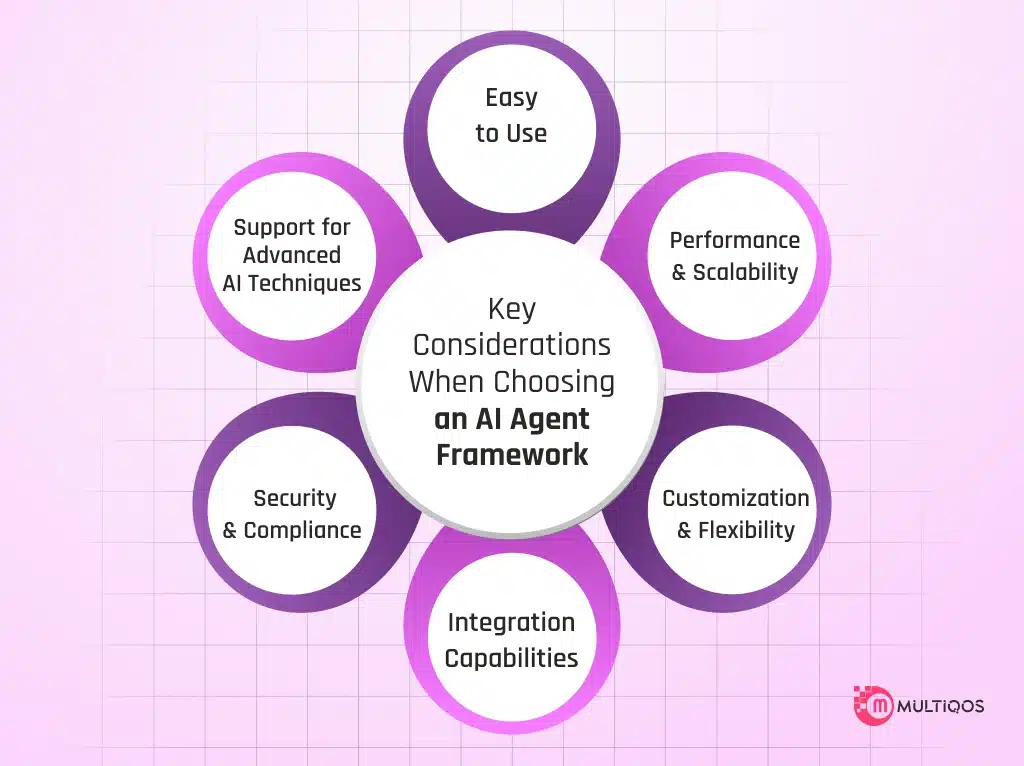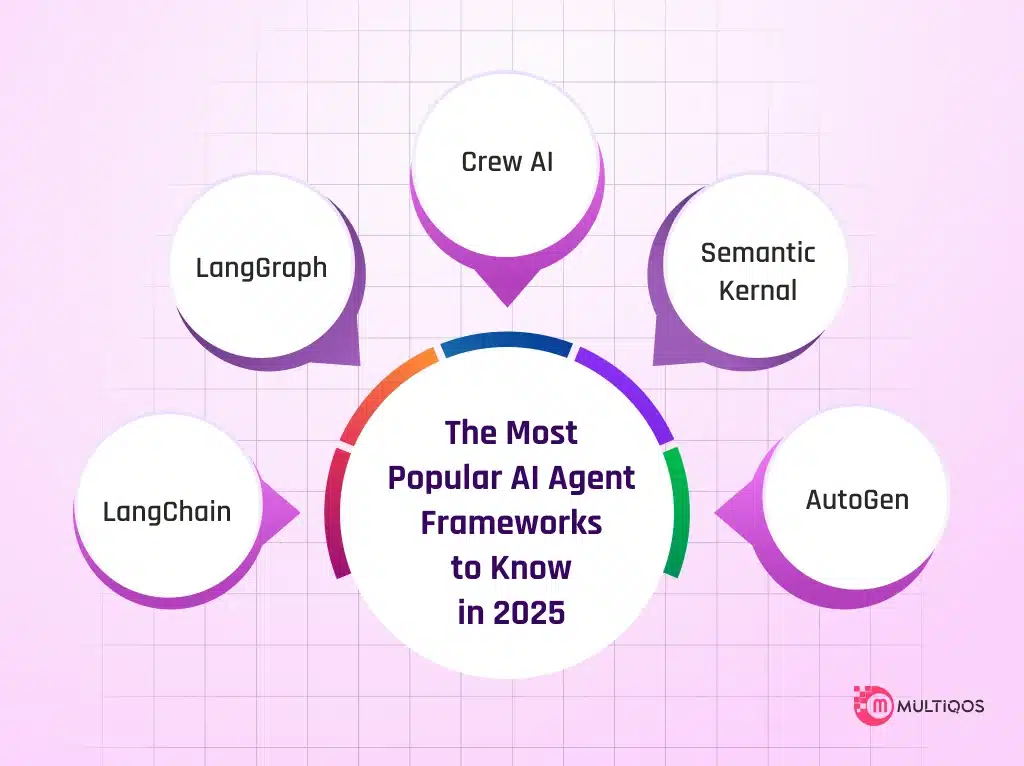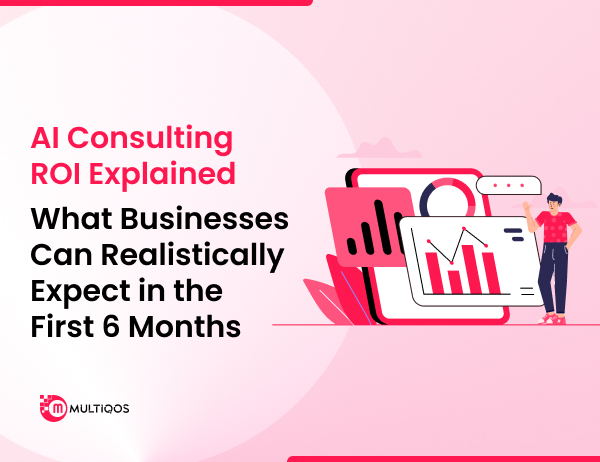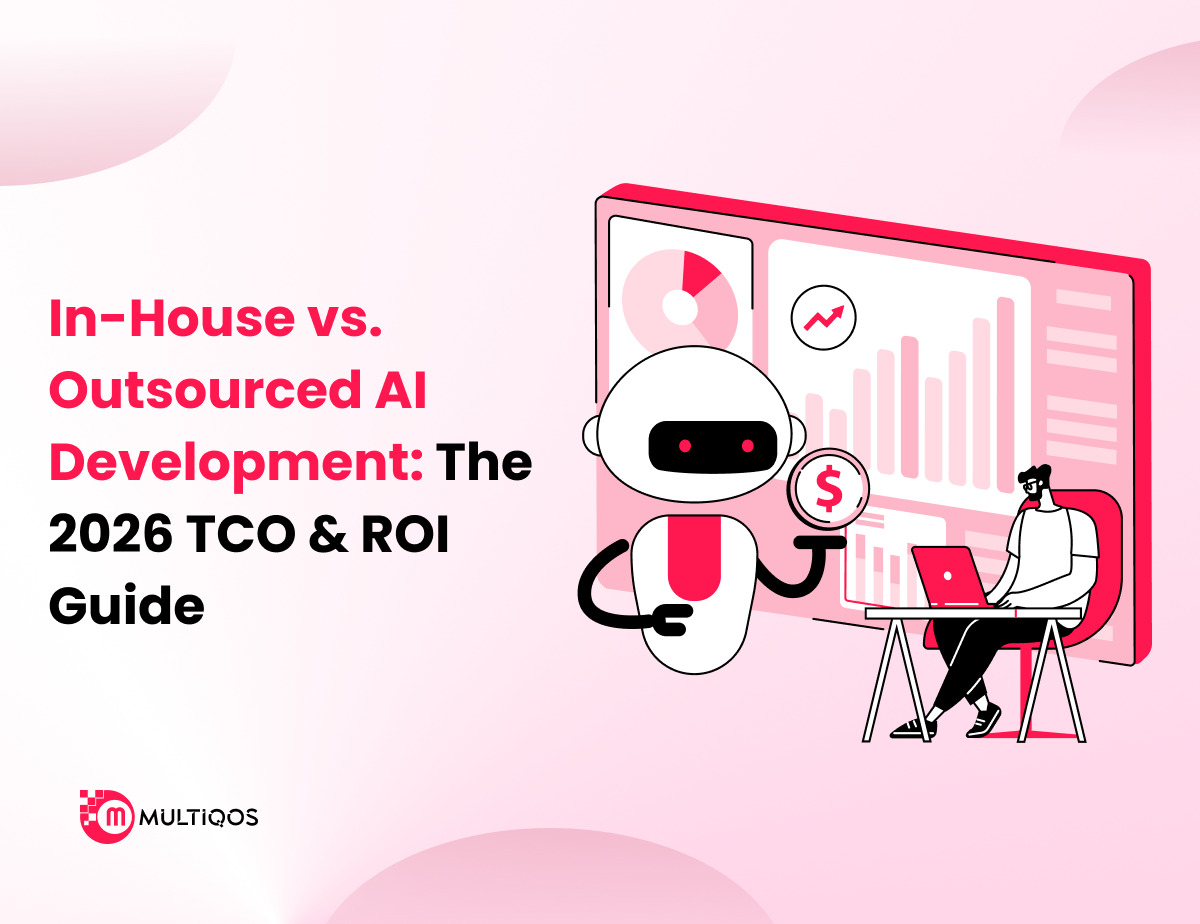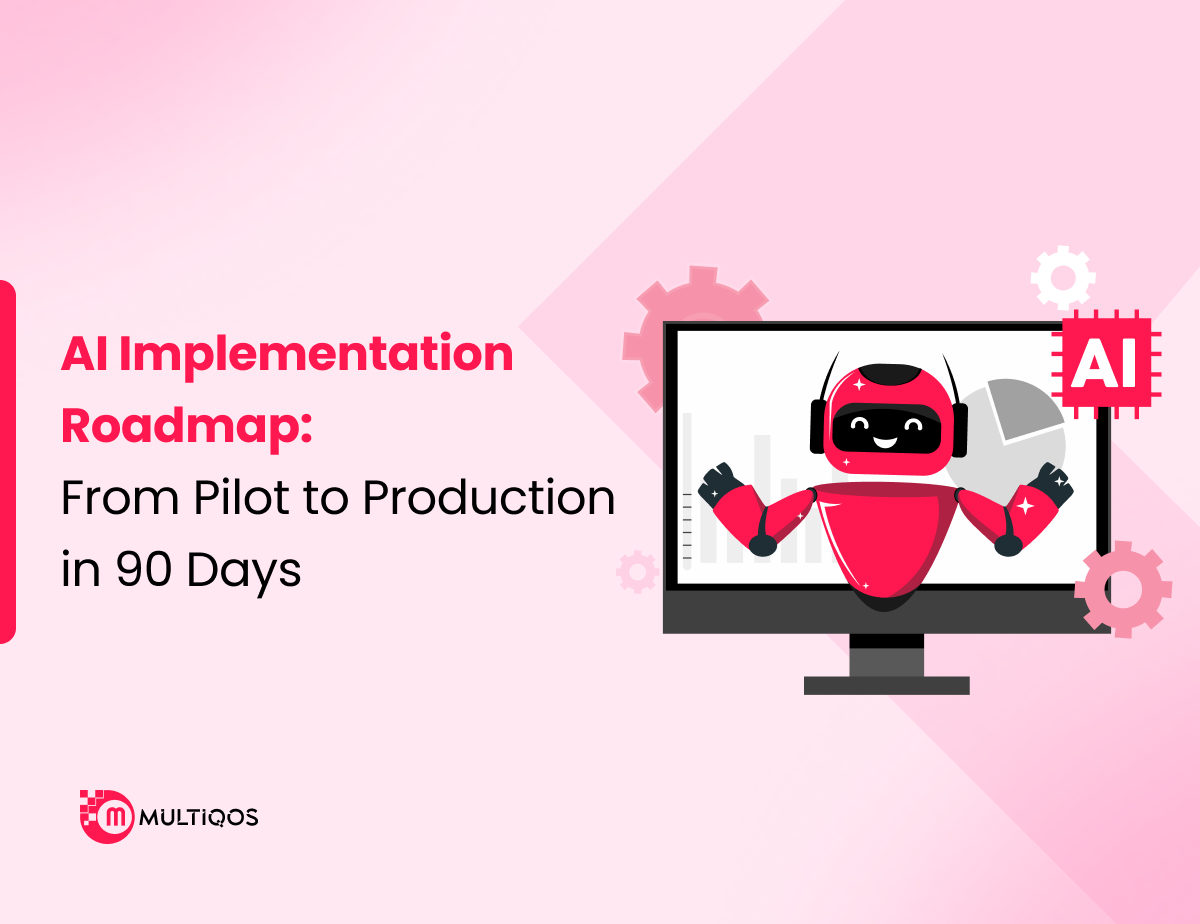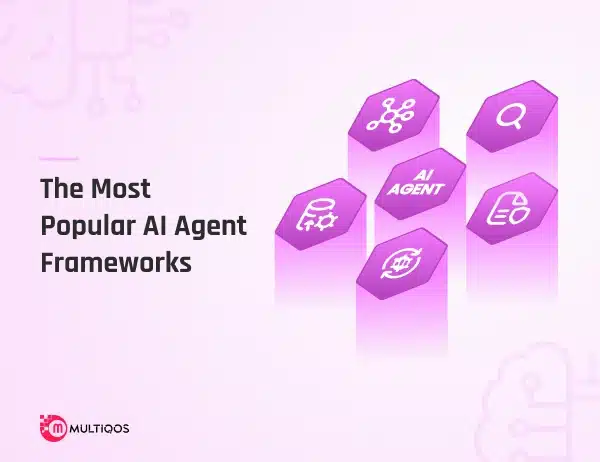
Introduction
The rapid digitalization of business operations forces businesses to use AI approaches to optimize procedures and boost customer service quality, and innovative capabilities. A business needs a robust platform that grows alongside its specific requirements for successfully implementing AI solutions.
AI agent frameworks deliver valuable tools that allow businesses to create intelligent systems that achieve task automation, boost decision-making abilities, and improve customer support functionality.
Businesses face difficulty selecting the right AI agent framework from the abundance of existing options. According to a survey, businesses report that choosing appropriate AI technology stands as their biggest challenge.
In this blog, we’ll discuss the key considerations that you need to keep in mind while choosing the best AI agent framework for your business’s AI future and success.
What is an AI Agent Framework?
AI agent frameworks serve as structured platforms that support all phases of AI agent development and deployment for autonomous application software. The infrastructure supplied by these frameworks provides all necessary architectural tools and libraries for developers to build intelligent agents that understand data and execute procedures as per prescribed rules or extracted patterns.
The framework includes machine learning, natural language processing, data handling, and communication interfaces that enable companies to implement AI solutions without redevelopment efforts.
An AI agent framework enables the development of autonomous systems that solve issues, respond to users, and adapt to environmental changes. These frameworks provide the structure for agents to operate effectively whether it’s a virtual assistant, chatbot, or a complex business process automation system.
These abstractions in AI development streamline company capabilities to deploy sophisticated AI solutions that adapt to organizational growth over time.
Importance of AI Agent Frameworks in Modern Business
Modern businesses rely on AI agent frameworks to implement artificial intelligence through proper guidelines. The systematic tools serve as bases to develop intelligent systems that execute automated operations and process information simultaneously while eliminating the requirement for human interaction.
AI agents manage diverse activities across the enterprise, so businesses free up human workers to handle more valuable tasks. It has become a core business strategy that makes a carefully selected AI agent framework deliver enhanced productivity and decreased operational costs with superior overall effect.
AI agent frameworks serve as essential elements to enhance customer management through personalized service delivery. It uses machine learning and natural language processing to serve customers with conversational interactions that mimic human behavior through context understanding and relevant solution delivery.
Through enhanced interactions, AI builds better client relationships that lead to dedicated customers by offering customized service across a wide range of customers.
Key Considerations When Choosing an AI Agent Framework
1. Ease of Use
AI agent framework provides intuitive interfaces and user-friendly designs, so it becomes essential to consider the support level of a framework. Your search for solutions should include frameworks that provide visual development tools and drag-and-drop functionality for your team without needing any extensive coding expertise.
Examine the built-in testing and debugging capabilities of the framework because it enables your developers to speed up error detection and resolution processes that reduce both time and expenses.
2. Performance and Scalability
The important quality of a system is its capability to handle scaled workload dimensions including size but in terms of operational complexity. Your real-time information processing framework needs to handle enormous data volumes efficiently to avoid causing performance interruptions when using AI.
Assess the method through which the framework uses cloud-based infrastructure and distributed computing to manage load balancing when peak usage occurs. Future technologies should be predicted through scalability development while allowing the framework to integrate new technologies such as edge computing or advanced AI algorithms without a complete overhaul.
3. Customization and Flexibility
AI system flexibility includes more than current requirements because it needs to adapt to future business demands. Evaluate the framework to determine if it includes modular components that function independently for easy replacement or enhancement of your requirements over time.
Make sure to choose a framework that enables transitions among features such as basic chatbots, predictive analytics, and personalized recommendations without complications. The framework should offer selectable database connections or switch between ML models based on your individual business requirements.
4. Integration Capabilities
Modern businesses leverage numerous software platforms, including CRM systems like Salesforce to marketing platforms like HubSpot. The selection of an AI framework must include native integration capabilities with common business tools as it eliminates the need for expensive and labor-intensive custom development.
Examine how the framework operates with APIs from external services so different departments and systems can exchange data throughout their operations. The easier the integration process, the faster your AI agents add value to your business operations.
5. Security and Compliance
Apart from making sure that the framework you choose supports standard security measures, you should look into some specific functionalities based on data privacy.
For instance, does the AI agent framework support multi-factor authentication to ensure that only authorized users access the data? Does it anonymize sensitive information before processing it? Not only this, check whether it includes audit trail tools to track changes that were made to your AI models to ensure accountability in your AI-powered processes.
6. Support for Advanced AI Techniques
Businesses that desire to use state-of-the-art AI solutions heavily rely on advanced AI support functionalities within the framework they choose to implement. Choose platforms that provide adaptable systems for model training, testing, and deployment capabilities for hyperparameter tuning to enhance model efficiency.
If you’re operating large datasets, consider AI agent frameworks that support distributed computing and GPU acceleration to speed up training times and boost overall efficiency.
Choosing the right framework will help you build a complex recommendation system, advanced computer vision tools, and autonomous agents that provide all the required resources to support these innovative apps.
The Most Popular AI Agent Frameworks to Know in 2025
1. LangChain
The LangChain framework serves as a strong development tool that makes LLM applications easier to build. The main purpose of LangChain centers around developing complete apps that use language models as their primary power source.
Users can connect LangChain with external APIs along with data tools which streamlines the development of complicated systems and business processes. This framework functions as an ideal solution for developing chatbots and document-based applications that need language data automation.
2. LangGraph
This visual-based framework helps developers build and execute apps using AI technologies. The text-based methods in traditional programming make way for LangGraph which depicts data pathways together with AI agent choices and communication patterns through graphs.
Developers find it intuitive to create, improve, and release AI systems through a visual modular design.
3. Crew AI
The collaborative AI platform Crew AI functions as an environment to develop AI agents with team members. Crew AI provides features that allow teams to organize the development of AI agents for multiple domains through joint design and deployment testing.
The platform emphasizes collaboration that enables users to control AI agents better by utilizing standardized parts that can be reused between applications. Organizations that handle diverse team-based AI projects will find this platform particularly beneficial for their needs.
4. Semantic Kernal
Microsoft developed a Semantic Kernel framework that enables the creation of intelligent agents that link machine learning models with knowledge systems. The framework positions itself toward understanding semantics and contextual elements of AI exchanges to build responses that align with actual world understanding.
The Semantic Kernel functions best in situations demanding thorough context awareness followed by complex reasoning processes because it depends on knowledge graphs for architectural implementation.
5. AutoGen
AutoGen operates as a framework that enables developers to construct agents able to improve themselves. The system uses data-powered feedback systems to create new models that refine agents.
Through learning from past events AutoGen provides applications with tools to develop themselves and adapt autonomously during long periods of operation requiring constant enhancement and adaptation.
The Verdict
The future of your business depends on making the right choice regarding the selection of an AI agent framework. The framework you choose creates a complete spectrum that extends to operational productivity, scalability, customer interaction, and long-term expansion.
Evaluate the factors carefully before choosing the framework and make sure it includes usability, ease of use, integration functionality, and connectivity that aligns with your operational goals and technical demands.
The growing demand for AI to stay competitive encourages organizations to work with a skilled AI agent development company that assists them through the selection process and implementation. Businesses get customized AI agent development services from these companies to simplify their deployment of AI technology within their organizations.
AI becomes more powerful when you integrate a well-prepared strategy so your business can innovate new products and satisfy customers in an ever-evolving digital arena.
People Also Ask
The AI agent framework comprises tools and library elements that offer developers methods and optimal approaches to designing intelligent agents. The agents operate autonomously while making decisions until they fulfill their tasks by interacting with either users or other systems. The pre-developed framework components assist businesses in integrating sophisticated AI functions without constructing the technology from basic elements.
We offer customized AI agent services that meet specific requirements found in various types of commercial operations. The company develops intelligent chatbots, automated virtual assistants, personalized recommendation systems, and advanced decision-making agents. Our AI agents function to improve both user engagement and business expansion across all horizontal and vertical business operations including customer support, internal processes, and data-driven solution creation.
The implementation of our AI agents includes seamless integration. We collaborate closely with your team to integrate properly within your current commercial systems including CRM, ERP, or custom platforms. Your AI agents gain maximum value by integrating with APIs, databases, and third-party services which we support to create operational workflows that do not disrupt your existing business procedures.
Absolutely! Our company acknowledges that every business has unique obstacles and objectives. AI agents from our company enable customization which allows you to achieve various business goals including automation of tasks, enhanced customer involvement, and more effective data handling. Together we establish your business needs and create dedicated agents that correspond with your developmental requirements. The AI solutions we provide undergo modifications to suit your business operations and industry requirements to become a suitable solution.
AI agents surpass their ability to automate operations and carry out additional complex operations. Frameworks such as AutoGen and Semantic Kenal enable complex decision-making and reasoning. AI agents support data analytical processes through which they evaluate multiple scenarios before they decide using both previously established rules alongside internal experience-based learning. The decision-making abilities of AI agents make them suitable for finance operations, healthcare apps, and business strategic initiatives since dynamic scenario evaluations are necessary in such domains.
Get In Touch


